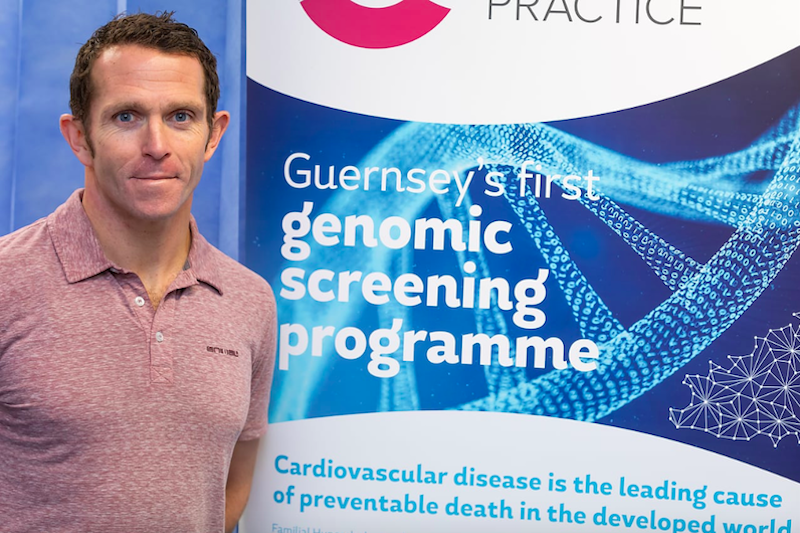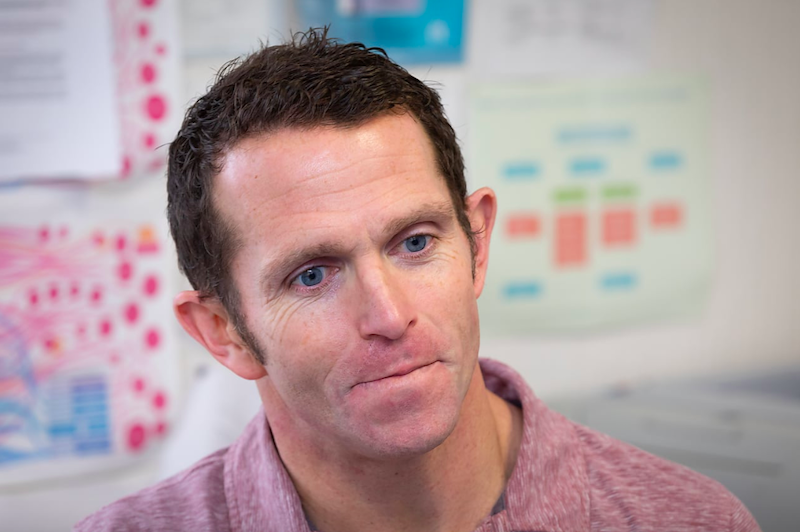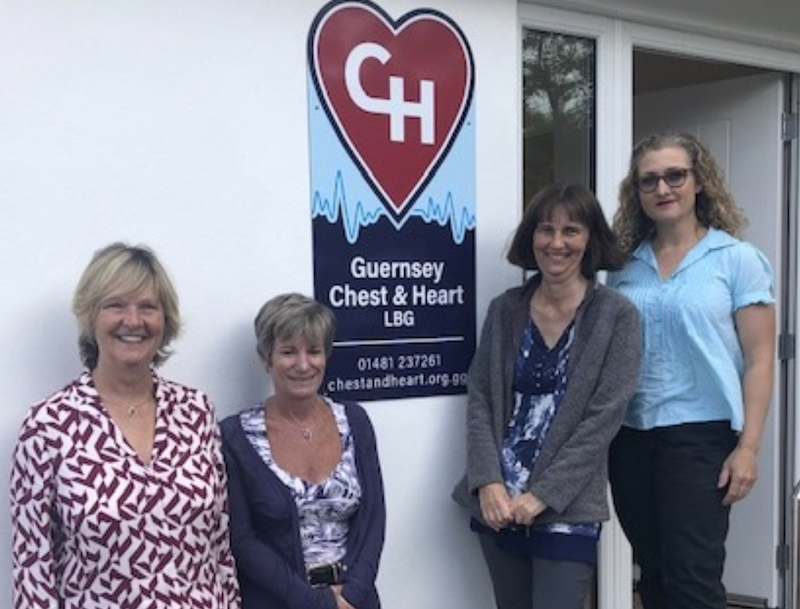


A Familial Hypercholestoraemia screening programme has been set up to help fight cardiovascular disease, one of the leading causes of preventable death in the developed world. Express found out more about the genetic condition and the impact the new initiative has had so far in diagnosing people before they develop heart disease.
FH is an inherited condition that affects sufferers from birth, leading to higher levels of LDL-cholesterol and thicker arteries compared to people without the genetic disease.
In most cases, there are no symptoms, and by the time someone realises they have the condition, the damage has already been done.
"There are no symptoms, there are consequences," said Dr Mat Dorrian, Programme Lead at the Queens Road Medical Practice.
"50% of men who have this condition and who go untreated will develop heart disease by the age of 50. In women it is slightly less risky up to the age of 50, however 30% of women with this condition will, by the age of 60, develop heart disease."

Pictured: If the condition is identified, Dr Dorrian said it can be treated with tablets and the patient’s likelihood of developing cardiovascular disease will return to normal risk levels.
It is a condition that on average affects 1 in every 250 people, although the true incidence rate in Guernsey is not yet known. Dr Dorrian and his team at Queens Road set up a screening programme 12 months ago to raise awareness of the disease, emphasise its crucial differences from non-genetical high cholesterol, and to provide treatment that will change lives.
"High cholesterol is a really common problem and there are plenty of people who will be on treatment for high cholesterol from their GP," said Dr Dorrian.
"There is a separate condition to the normal, sometimes lifestyle-related high cholesterol called Familial Hypercholestoraemia (FH), which is a genetic condition that essentially means that one of their genes isn’t functioning properly.
"If someone has inherited a gene that is faulty they cannot process cholesterol in a normal way, and so they will always have high cholesterol and, importantly, will have high cholesterol from an early age.
"The consequence of that is early onset of heart disease, which is the biggest problem. You can get early onset strokes as well, but heart disease is the biggest issue."
The genetic nature of FH means that an effective screening programme is key to any community-wide attempts to address the condition.
QRMP FH Screening Video from Queens Road Medical Practice on Vimeo.
Last year, Queens Road presented a protocol to the Medical Specialists Group and GPs across the island so that secondary care providers would refer patients with a combination of high cholesterol and family history of heart disease to the clinic.
"We have known about this condition for a long time, but it is difficult to diagnose without doing a genetic test because there isn’t an absolute cut-off level of cholesterol above which you have got this condition. Some people who have high cholesterol will have this condition but the majority won’t.
"The other main factor is a family history of early heart disease, inherited from one of your parents. If one of them has a faulty gene, a child has a 50/50 chance of inheriting that gene."
"And so the patients who are coming in are doing so with a degree of suspicion that they have this condition and then our job is to test whether they have it. The reason the genetic test is so useful is that it provides an unambiguous answer.
"So if we can identify it, we can start people on treatment, and evidence points to the fact that their risks of heart disease return to normal levels."

Pictured: Two clinics have been held at the Queens Road Medical Practice to date.
Identifying a positive case is crucial, as it can lead to the identification of relatives who had to this point gone undiagnosed.
"Once we have found that defect in your gene, we can go to that patient, who is called the index patient, and go to their relatives and test them for that gene."
"You can branch out very quickly and test widely the extended family group. The whole reason for doing this is that you are trying to identify people at an age where they perhaps they would not have dreamt of going to the doctors to get a cholesterol check."
The new service has already screened more than 50 potential sufferers of FH.
"We have had enough to fill two clinics already, which is 56 patients," said Dr Dorrian. "We have sent off tests and had test results back on almost all of the 56, we are just waiting for a few more tests from the second clinic."
"We are looking to run another clinic this year. We usually get nurses over from the Wessex FH clinic in Southampton to do the genetic counselling of patients, so we are probably going to do a virtual clinic instead."
In England, The 2019 NHS Long Term Plan has set the ambitious target of finding 25% of the predicted FH patients in the next 5 years, which equates to 55,000 people.
Dr Dorrian says that population dispersal across the water will have an impact of the success of cascade testing, which should be easier to achieve in Guernsey's island community.
"There has been a national programme which has started running in various areas of the country, one of which is Wessex where I did my genomics degree.
"We at Queens Road decided that genomic medicine is something that is likely to expand in the future and that one of us should train up in it."
"When I was doing my genomic degree I had to do a dissertation and it become clear to me very quickly that if I did a dissertation project on FH in Guernsey it might end up being a dissertation project that actually ended up effecting a change.
"It essentially ended up being a business case or feasibility study for how we could do it in Guernsey."

Pictured: Butterfield Bank is supporting the FH screening programme as a private partner.
Queens Road, which has signed a long-term contract with HSC as part of the Partnership of Purpose, has also secured financial support from a private bank.
"Making the clinic free at the point of access was clearly a priority from the start," Dr Dorrian emphasised.
"From that point of view, what we have done is reasonably ground-breaking.
"It was quite an easy sell to HSC and our partners in this, Butterfield Bank, as the national guidance has been there for quite a while that we should be looking for this condition.
"The benefits of identifying it from a Public Health point of view are massive; you help stop heart disease, which is one of the leading causes of death in the western world and you can really make a dent in that by picking up this condition early."
People who cannot afford to go for a medical appointment can go to the Chest and Heart Clinic at the PEH for a free spot cholesterol check, however Dr Dorrian recommends seeing your GP for a more comprehensive assessment.
"I would urge people to speak to their GP about it. I recognise that there is a fee associated with seeing GPs however if there is a strong family history of this I would urge them to make contact with their GP."

Pictured: Chest and Heart is a local charity that can provide spot cholesterol checks for free.
"If they are struggling financially, all GP practices will speak to them about that," Dr Dorrian continued.
"This service has been set up with a filtered referral process. If someone has this condition then they are going to need ongoing treatment and that will be provided by their GP. There is a pinch point there but we have tried to make this as accessible as possible."
It has also been set up with lofty ambitions that, if achieved, would put in place a screening and support network unrivalled across the globe.
"It sounds like a bold claim but we want to have the most effective screening programme in the world for FH. The key strategic aim of this screening programme is that we need to get patients in and diagnose them.
Dr Dorrian, the local BMA representative, says the success of the screening programme depends on how many relatives they can screen once a positive case has been identified.
"In the UK, they struggle to get above one relative per index case diagnosed because of population dispersal, while some will have access to it through their health authorities and some won’t.
"The real key to our success is the number of people that we can screen per index case. We are convinced that with Guernsey’s tight-knit local population and the strong sense of family and community, we can make this the most effective Familial Hypercholesterolaemia screening programme in the world."
Comments
Comments on this story express the views of the commentator only, not Bailiwick Publishing. We are unable to guarantee the accuracy of any of those comments.